“The difference between rich and poor is not wealth but opportunity. The poor are the world’s greatest entrepreneurs. Each day they must innovate in order to survive.”
Professor Muhammad Yunus
Our Solutions
SORT BY
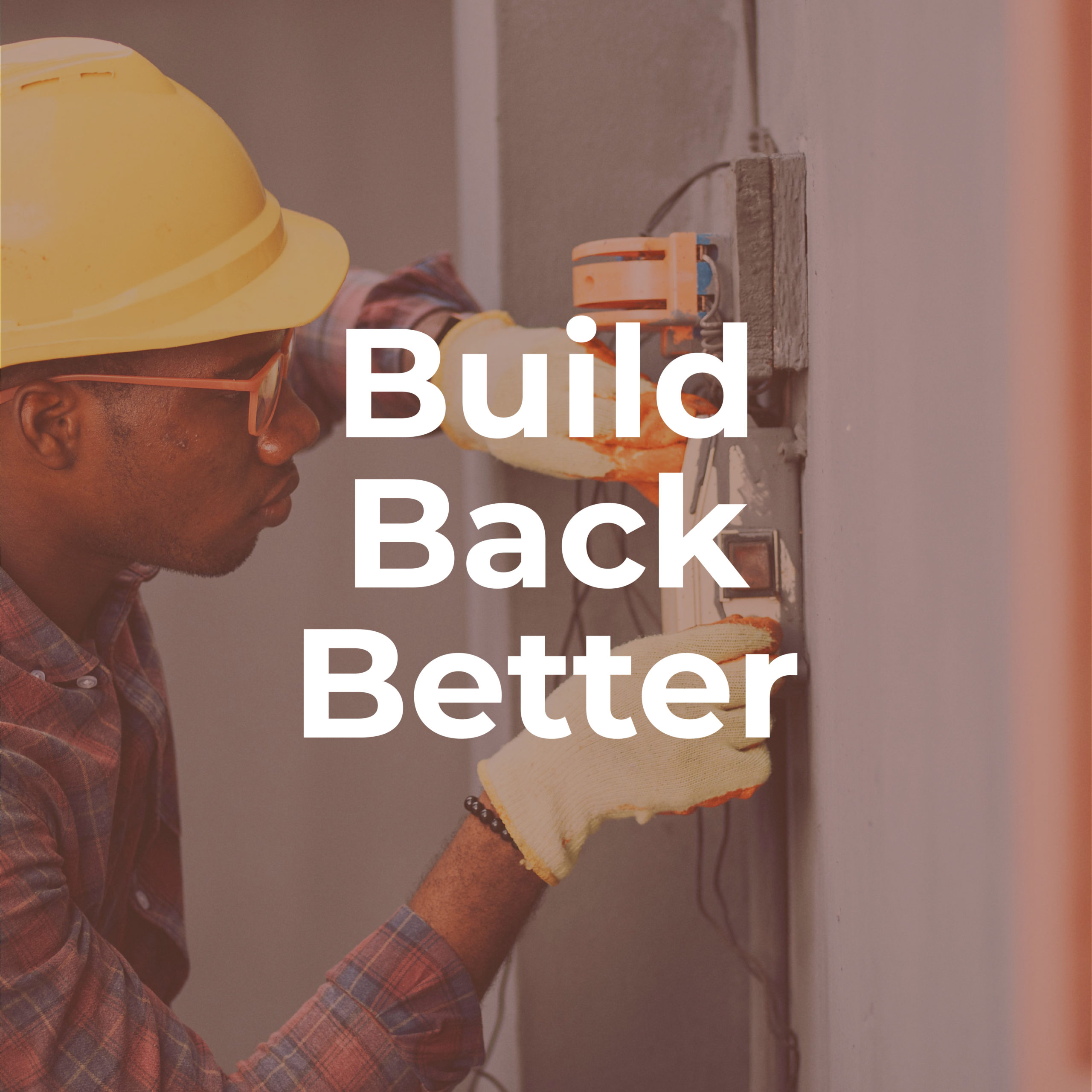
Build Back Better Social Business Program

SHE Stars
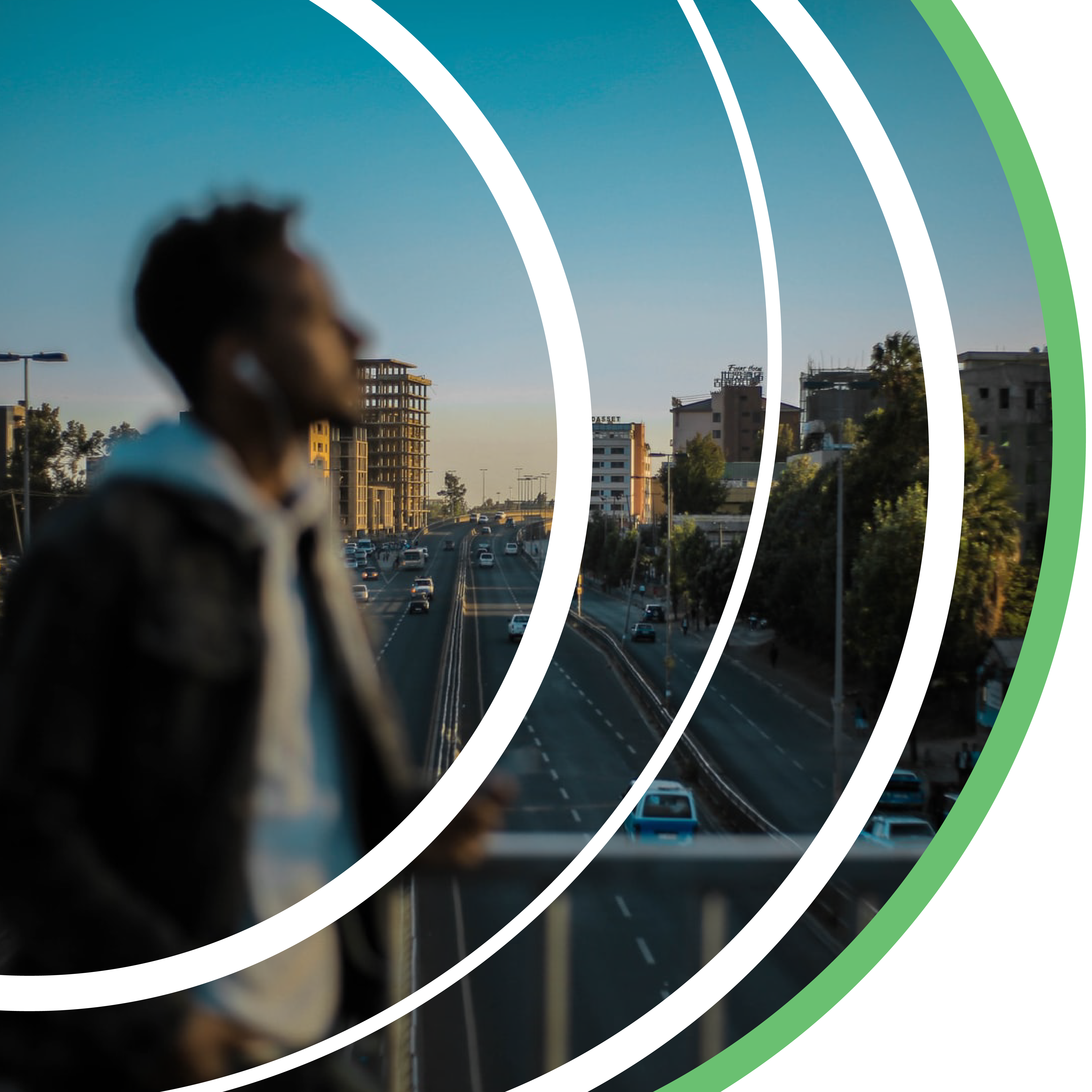
Circular Ethiopia
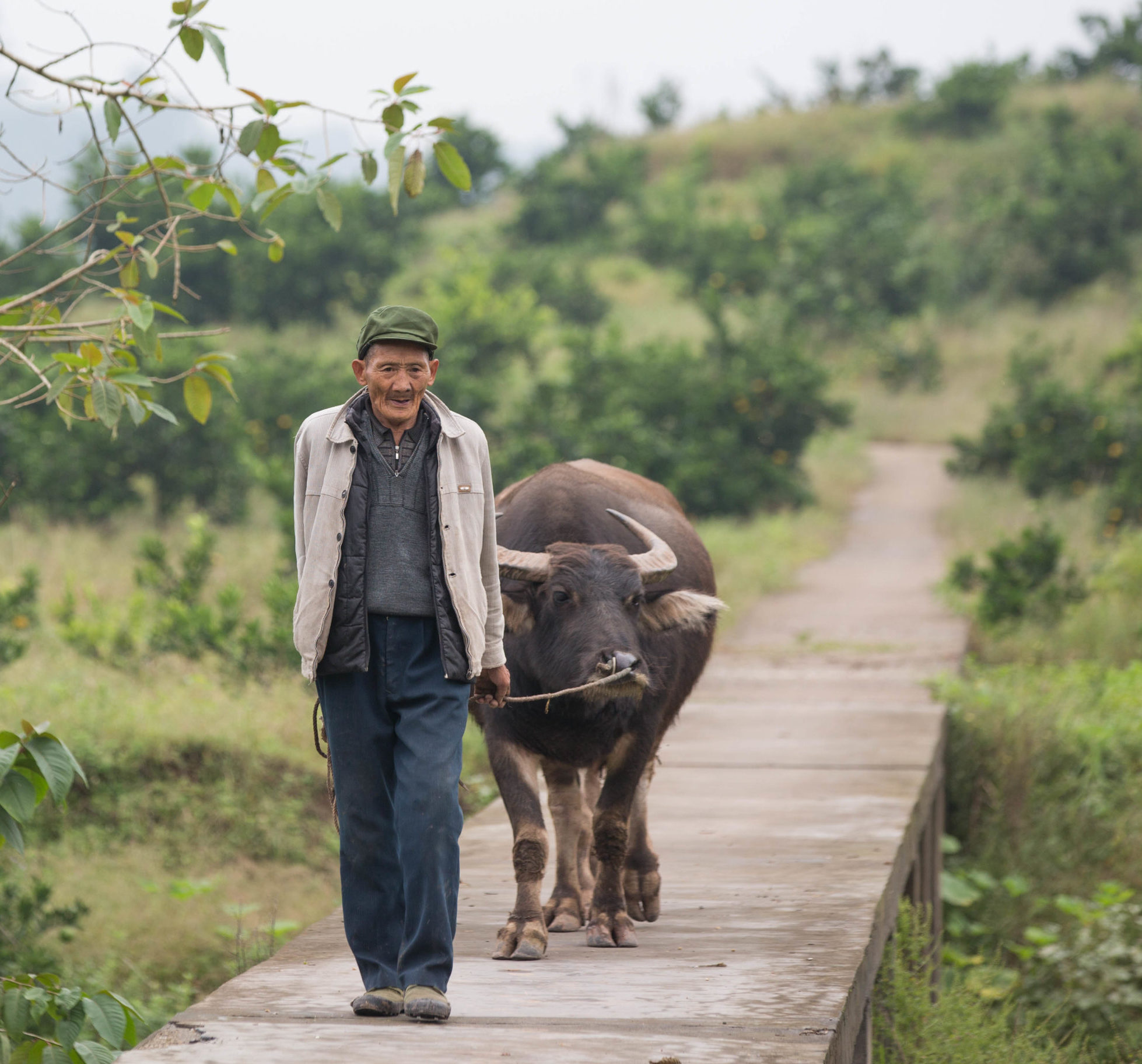
ClimateSeed
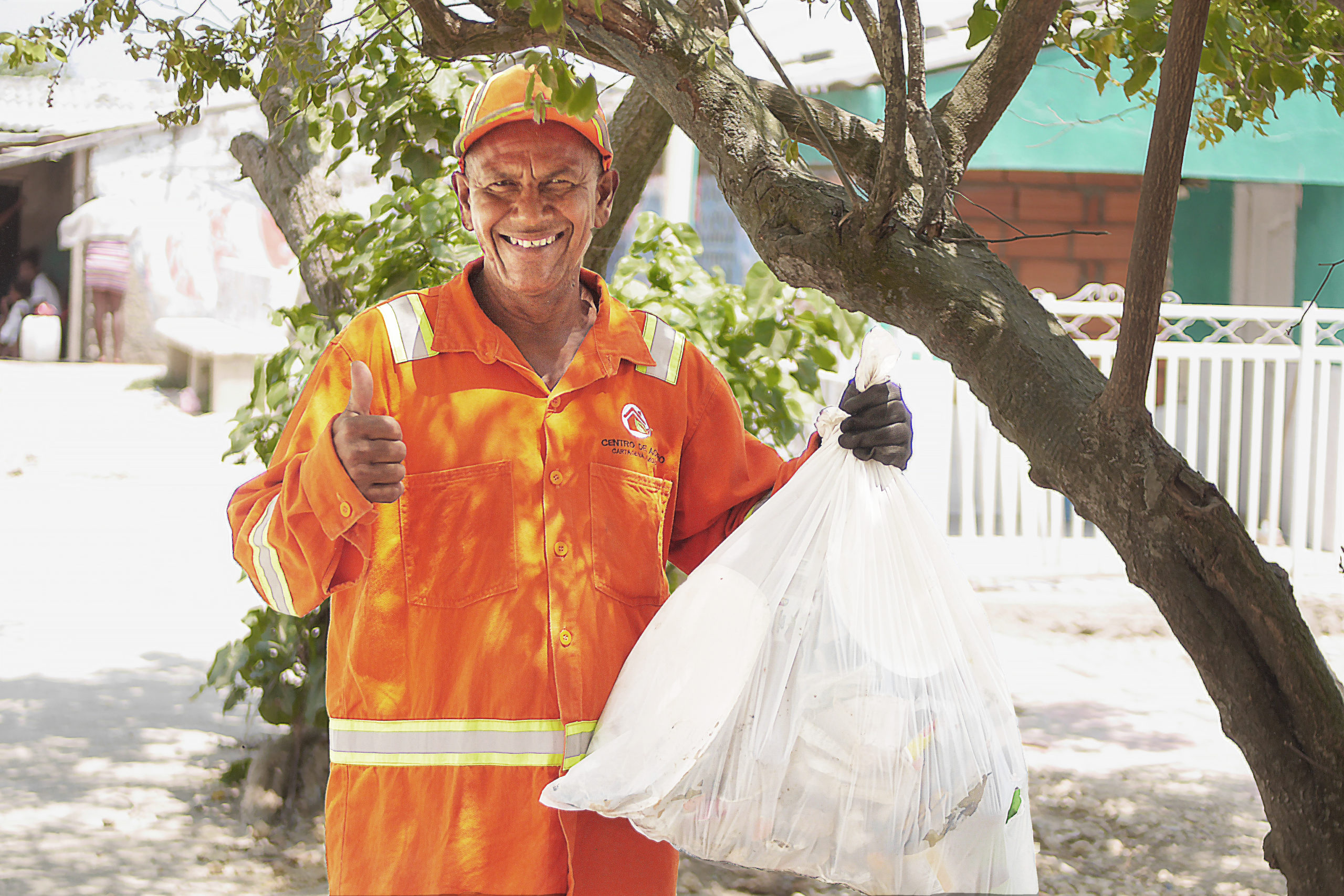
Zero Plastic Waste Awareness Campaigns
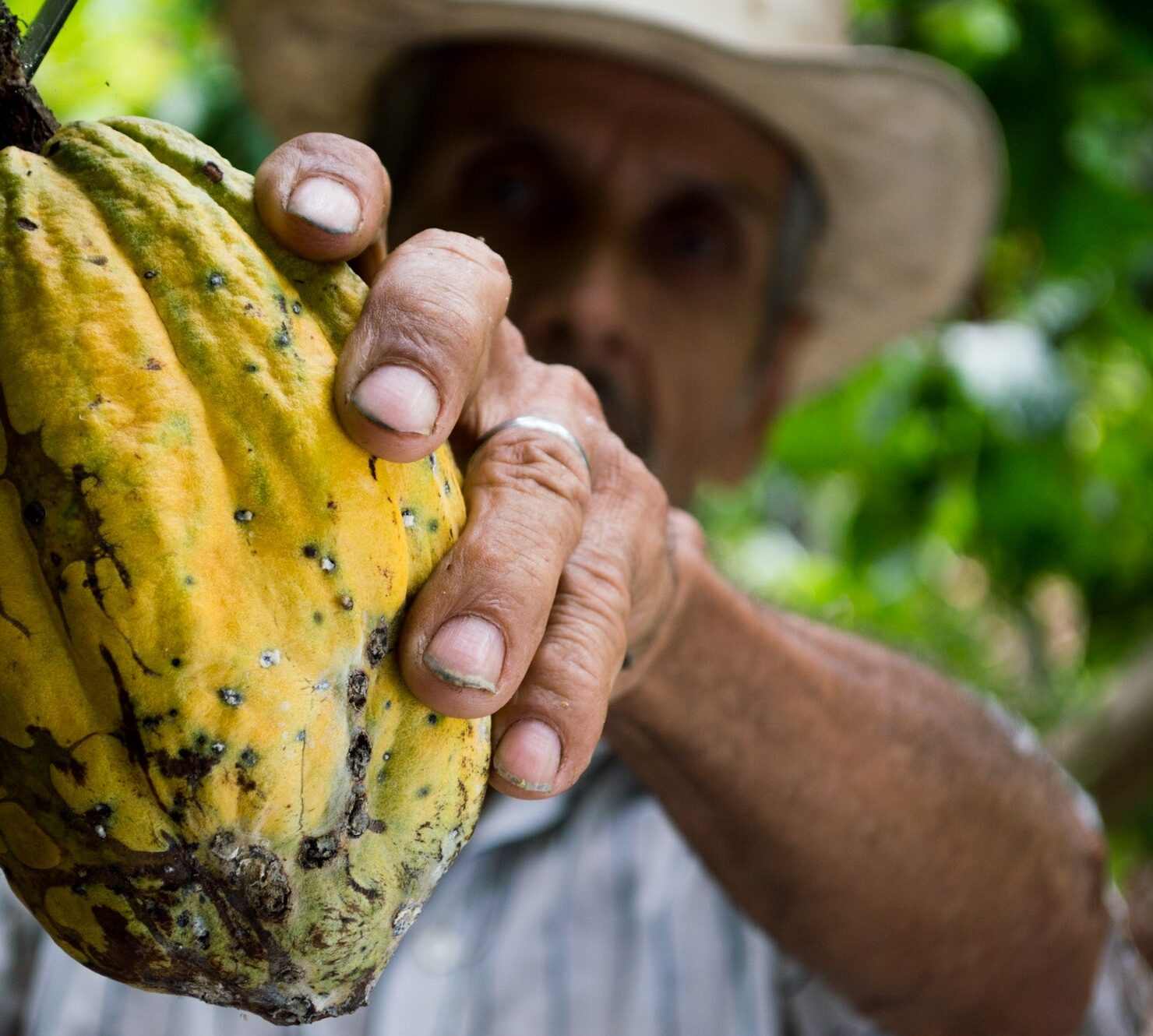
Bridges for Peace - Sustainable Agriculture in Rural Colombia
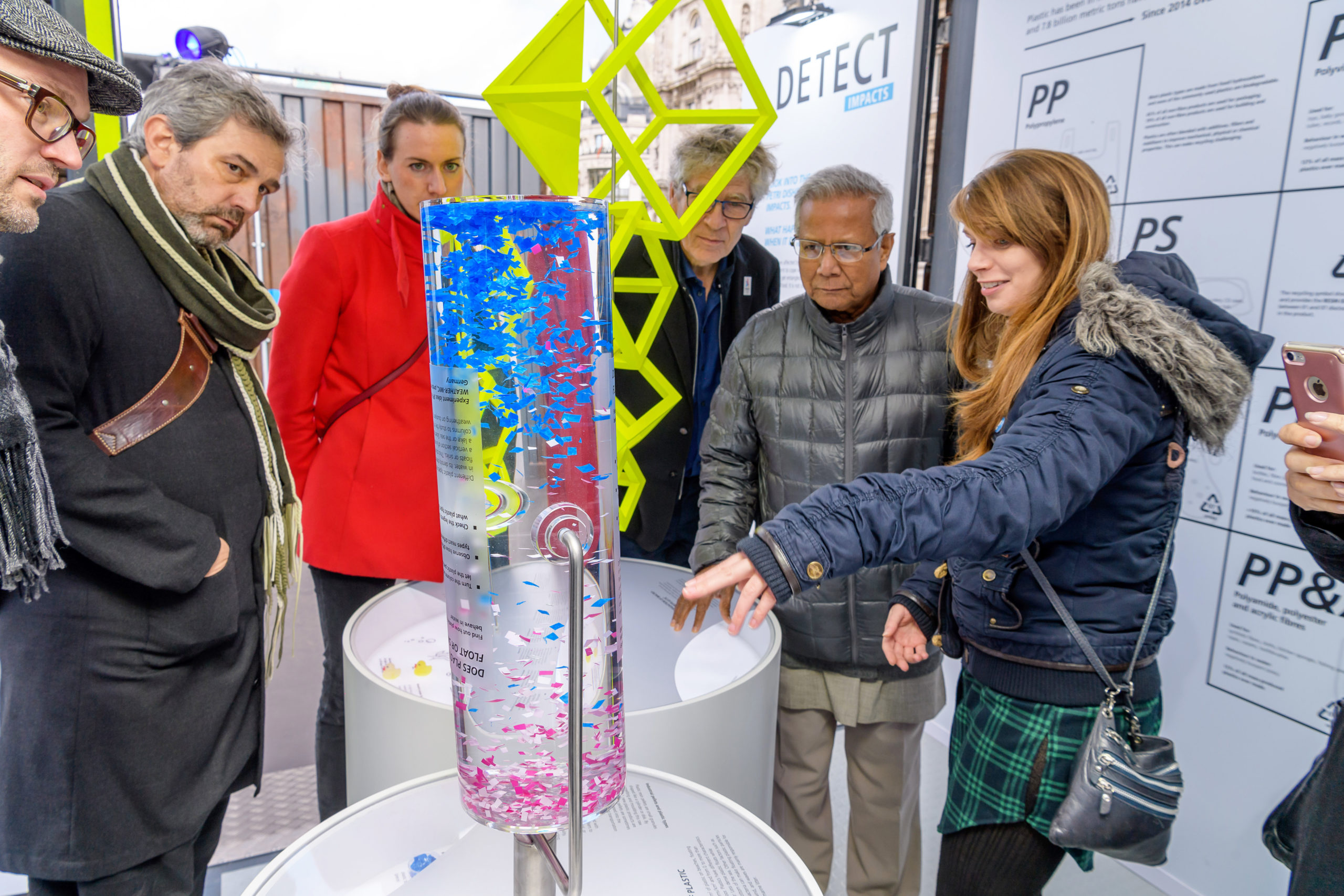
The Plastic Lab
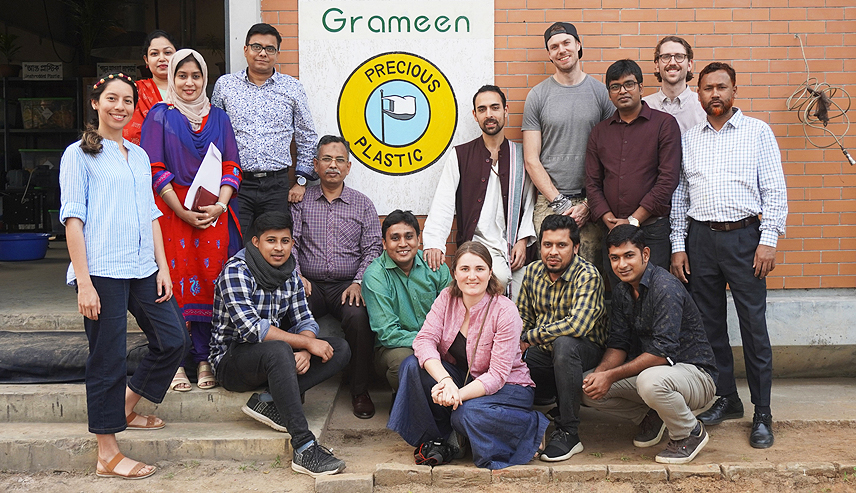
Grameen Precious Plastic
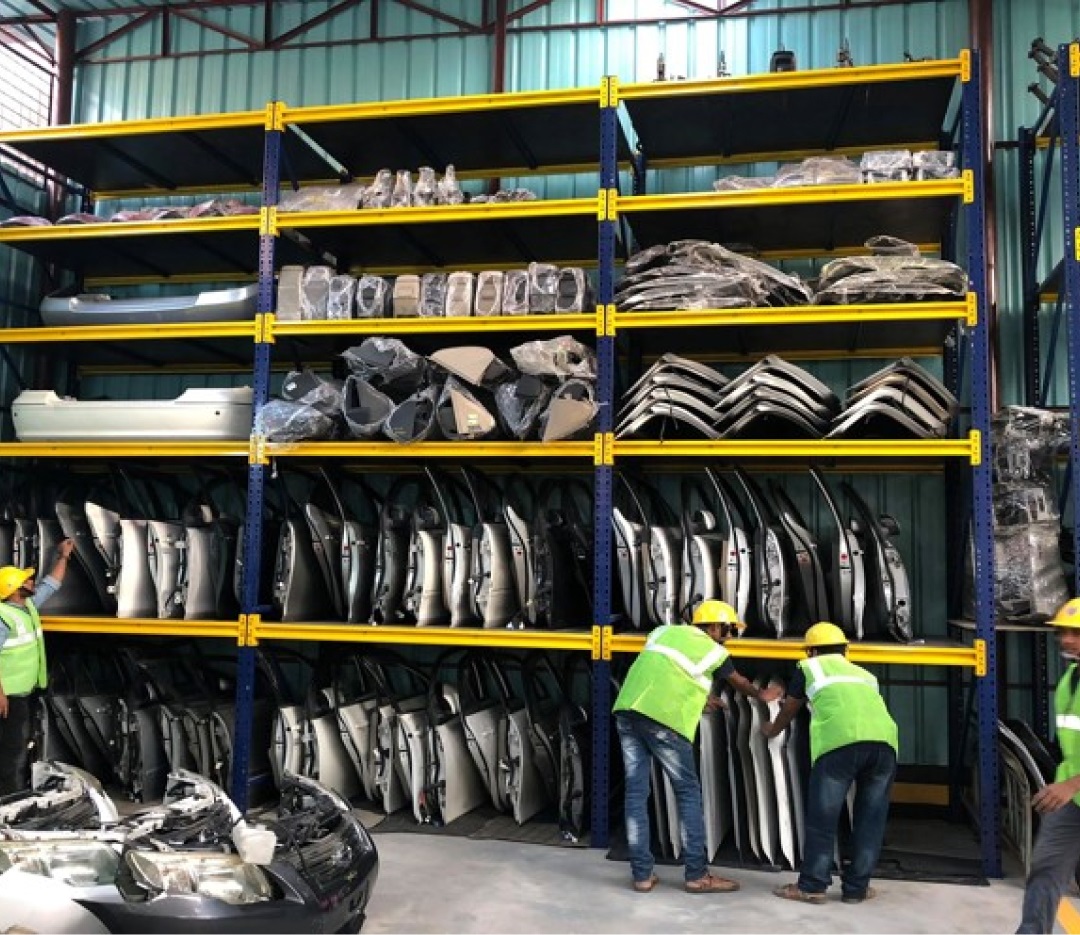
Grameen Sunpower

Build Back Better Social Business Program
Yunus Environment Hub launched the Build Back Better Social Business Program on behalf of Deutsche Gesellschaft für Internationale Zusammenarbeit (GIZ), to support 25 social businesses in Kenya to harness the advantages of circular economy. The program promoted the transformation to a more economically sustainable business growth that prioritized social and environmental sustainability and employment opportunities.

SHE Stars
Yunus Environment Hub implemented the “SHE STARS – See Her Empowered” program to support women-owned businesses impacted by the Covid-19 economic situation and increased climate risks. Over 18-months, we supported 1,500 women-led micro, small, and medium enterprises to build more resilient, sustainable, and competitive businesses in response to disrupted livelihoods, climate change, biodiversity loss, and a resource-depleting economy.

Circular Ethiopia
Circular Ethiopia is a comprehensive training program aimed to foster circular economy opportunities through social business entrepreneurship. The program included open-access webinars to increase public awareness for the circular economy concept, followed by a social business idea competition, a 4-week mentoring program and a Demo Day.

ClimateSeed
Arising from the close collaboration between BNP Paribas and The Grameen Creative Lab, Yunus Environment Hub supported the launch of ClimateSeed, BNP Paribas’ first social business venture. The digital platform provides carbon reductions and reporting solutions . For more information, visit: https://www.climateseed.com/

Zero Plastic Waste Awareness Campaigns
Yunus Environment Hub conducted stakeholder activation workshops in communities with high plastic waste leakage to raise awareness and prompt action. As part of the Zero Plastic Waste, Zero Poverty project, clean-up campaigns and capacity-building workshops were held on the Caribbean coast in Colombia. These initiatives aimed to raise awareness among local households, connect regional stakeholders, and engage potential social business entrepreneurs in the community.

Bridges for Peace - Sustainable Agriculture in Rural Colombia
During the peak of the global Covid-19 pandemic, Yunus Environment Hub delivered a 12-week training and mentoring program for small-holder farmer organisations in rural Colombia as part of Fundación Compaz`s Bridges for Peace Program. During the program, four social business entrepreneurs from the Amazonas region, Pacific, Guajira and Bolivar received online trainings and a personalised development plan to overcome challenges related to access to markets, branding & digital marketing, and improving financial sustainability.

The Plastic Lab
The Plastic Lab was a creative laboratory that worked on solutions to keep plastic out of nature and support the transition to a circular economy by connecting social business entrepreneurs, corporations, scientists and innovators. Social businesses play an important role to create an effective after-use plastics economy to capture more material value and to increase resource productivity to turn the tap on plastic pollution as well as to design new business models that reduce plastic packaging in the first place.

Grameen Precious Plastic
In joint collaboration with the open-source project Precious Plastic, Grameen Telecom and Yunus Environment Hub, Grameen Precious Plastic was set up as a pilot recycling workspace in Dhaka, Bangladesh to raise awareness and engineer products from recycled plastic.

Grameen Sunpower
Aiming to increase recycling rates in global car manufacturing industries, Japanese car-repair and manufacturing company Sunpower teamed up with the Grameen network to establish a joint venture based in Bangladesh. Building upon the high recyclability potential of many car parts, the established social business will not only contribute to the transformation towards a more circular global car manufacturing industry, but will furthermore provide employment to workers from the informal sector.